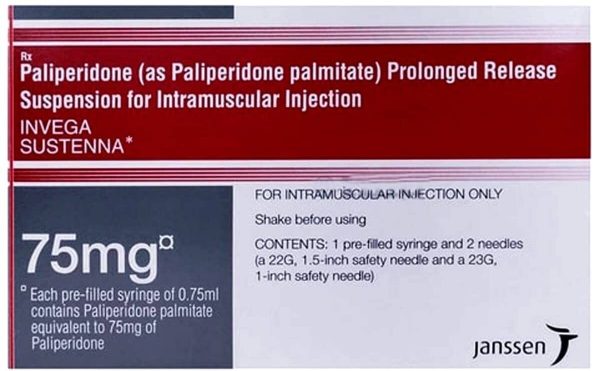Basically, a hysterectomy is a surgery to remove the uterus and is used to fix different problems in women’s bodies. Usually, it goes well, but sometimes things don’t go right, causing what’s called a “botched hysterectomy.”
This happens when mistakes happen during surgery, unexpected problems occur, or the care after surgery isn’t done correctly. The worst part is this can lead to serious problems for the patient. If you’re interested in this topic, keep reading to the end!
What’s a Hysterectomy?
A hysterectomy is a medical operation to remove a woman’s uterus or womb. Sometimes, the surgery also involves removing the ovaries, fallopian tubes, and part or all of the cervix. In addition, there are various reasons to perform this surgery, such as cancer, uterine fibroids, and uterine prolapse.
Furthermore, the surgeon performs the surgery while the person is asleep under general anesthesia. The cuts are made on the belly and can either be one big cut or several smaller cuts, which is called laparoscopic surgery.
Different Types of Hysterectomy
There are numerous kinds of hysterectomy procedures as explained briefly, as follows.
1. Radical hysterectomy
This surgery involves removing the entire uterus and cervix, usually done when there’s cancer.
2. Total hysterectomy
In this total type, it’s only the uterus and cervix that get removed.
3. Subtotal hysterectomy
This procedure removes the upper part of the uterus.
Sometimes, surgeons might also take out the ovaries and fallopian tubes. Usually, these surgeries are done through traditional open surgery. But, there are also minimally invasive methods such as the following types.
4. Vaginal hysterectomy
The surgeon cuts the vagina to remove the uterus.
5. Laparoscopic hysterectomy
Surgeons use a tiny camera attached to a tube. They make small cuts near the belly button, using the camera to guide the surgery displayed on a video screen.
You might have heard about the da Vinci robot, which sadly has been linked to many failed hysterectomies.
Hysterectomy Risks and Consequences
In situations where a hysterectomy goes wrong due to severe medical mistakes, it often causes harm to the intestines and nearby body structures. This botched hysterectomy might lead to intestinal leaks to allow bacteria and waste to enter the belly. These invaders can cause severe infections in other organs inside the belly.
The longer this infection persists, the more severe it gets and the harder it becomes to stop. If the infection becomes too strong or enters the bloodstream, it could trigger sepsis. This can lead to a condition called septic shock, where the body and organs start failing because of an overwhelming amount of bacteria.
Consequently, some victims might need to have their limbs amputated since the infection tends to spread from the farthest body parts towards the core.
Additional dangers of hysterectomies involve common surgical mistakes or errors with anesthesia. Errors in making cuts or failing to remove all the tissue could result in serious medical malpractice situations.
A Real Case of a Botched Hysterectomy
Let’s talk about Amy Reed, a 40-year-old doctor from Boston. She was married to a surgeon and had six children. Amy was facing stage 4 cancer and had an 85% chance of dying within five years. Before her planned hysterectomy, tests showed no signs of cancer.
Initially, doctors planned a routine procedure to stop bleeding caused by non-cancerous growths in her uterus. However, it turned out that Amy did have cancer, but a rare type that usual tests didn’t detect. The hysterectomy ended up spreading cancer cells throughout her body.
What should have been a treatable disease became deadly due to the botched hysterectomy procedure. dr. Amy Reed sadly passed away in May 2017, but her advocacy with her husband led to legislative changes.
Amy’s case isn’t unique. Research reveals that a specific technique used in around 11% of hysterectomies can make cancer worse in as many as 1 out of every 400 patients. Initially, doctors thought this number was much lower, around 1 in 10,000. The differences in numbers are quite alarming!
How Can You Tell If Your Hysterectomy Went Wrong?
Surgeries always have risks, even when doctors do everything right! But, what could go wrong during a standard hysterectomy? Well, here are some common complications:
- blood clots (thrombosis);
- infection where the surgery happened;
- heavy bleeding (hemorrhage); and
- adverse reactions to anesthesia.
However, some patients might face more severe reactions and side effects that go beyond what’s expected. So, how can you recognize if your hysterectomy didn’t go well? There are some signs as follows:
- damage to the bladder;
- injury to the ureter;
- punctures in the bowel or small intestine; and
- other serious and significant problems.
What If You’ve Been Harmed Because of a Hysterectomy Procedure?
If you face harm due to a botched hysterectomy, you may seek legal action to receive compensation for the failed surgery. These compensations typically resemble those seen in other cases involving personal injuries or medical malpractice. In general, plaintiffs can seek compensatory damages for:
- lost wages from being unable to work;
- additional medical expenses;
- physical and emotional distress; and
- if the patient passes away due to failed surgery.
Sometimes, punitive damages are available if it’s proven that the harm was deliberate. However, in certain states, there are limits set on non-monetary damages, like pain and suffering.
Do You Require a Lawyer for a Hysterectomy Lawsuit?
If you’re facing legal issues linked to a botched hysterectomy, it’s essential to seek guidance from a knowledgeable personal injury lawyer. With the intricate legal aspects involved, it’s a smart move to get help from the experts mentioned.
These experienced attorneys can explain the differences between negligence and malpractice, and between a failed surgery and an unnecessary one.
By consulting with a skilled lawyer, you’ll gain a clearer understanding of your situation and your rights. They’ll stand by you to advocate for your case and strive to ensure you receive the compensation you rightfully deserve.
Contact a Lawyer for Your Botched Hysterectomy Case!
In conclusion, a botched hysterectomy can have a lethal effect on your health and well-being. Hence, if necessary, before undergoing the surgery, discuss all the aspects with your surgeons and physician.
It is highly advised to consult with a specialized lawyer as a preventive act. A skilled lawyer can guide and help you understand your rights, and work towards getting the compensation you deserve, just in case.
Bagikan










